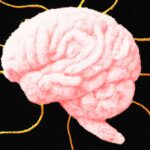Anthropic has agreed To pay at least $ 1.5 billion to resolve a demand filed by a group of book authors who claim a copyright offense, about $ 3,000 per work. In a court motion on Friday, the plaintiffs emphasized that the terms of the liquidation are “critical victories” and that going to court would have been a “huge” risk.
This is the first -class action settlement focused on AI and copyright in the United States, and the result can shape the way regulators and creative industries approach the legal debate on generative IA and intellectual property. According to the settlement agreement, the class action will be applied to approximately 500,000 works, but this number may increase once the list of pirate materials is completed. For each additional work, the artificial intelligence company will pay an additional $ 3,000. The plaintiffs are planning to deliver a final list of works to the court in October.
“ This liquidation of the milestone far exceeds any other known copyright recovery. It is the first of its kind in the AI era. It will provide a significant compensation for each class work and establishes a precedent that requires AI companies to pay copyright owners.This settlement sends a powerful message to companies and creators of the AI that Copyright’s web sites are wrong. ” Colead Plaintiffs, Justin Nelson by Susman Godfrey, Susman Godfrey, Susman Godfrey, Susman, Susman, Susman, Susman, Susman, Susman, Susman, Susman, Susman, Susman. Llp.
Anthropic does not support any crime or liability. “Today’s liquidation, if approved, will resolve the claims inherited from the plaintiffs. We are committed to developing AI systems that help people and organizations to expand their capabilities, move forward in scientific discovery and solve complex problems,” he said in a statement.
The lawsuit, which was originally filed in 2024 in the United States District Court by the Northern California district, was part of a larger wave of copyright litigation presented against technology companies for the data they used to form artificial intelligence programs. Authors Andrea Bartz, Kirk Wallace Johnson and Charles Graeber claimed that Anthropic formed his great language models in his work without permission, violating the copyright law.
This June, Senior District Judge William Alsup ruled that Anthropic AI formation was protected by the “fair use” doctrine, which allows the unauthorized use of copyright works under certain conditions. It was a victory for the technology company, but came with a great warning. As he collected materials to train his tools AI, Anthropic had entrusted in a corpus of pirated books from the so -called “shadow libraries”, including the well -known Libgen and Alsup site determined that the authors still need to be able to carry anthropic anthropic in a class on piracy class. (Anthropic argues that he really did not form his products in pirate works, instead of choosing to buy copies of books.)
“Anthropic was unloaded more than seven million book pirate copies, paid nothing and kept these pirate copies in his library even after deciding that he would not use them to form their AI (again or again). Authors argue that Anthropic should have paid for these copies of the Pirate Library.


